Hematology/Oncology Pharmacy Association (HOPA) | Strategic Alliance Partners
Latest from Hematology/Oncology Pharmacy Association (HOPA)
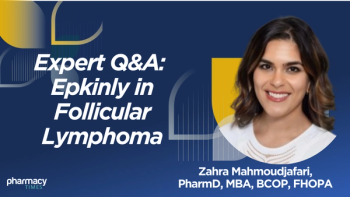
The epcoritamab, rituximab, and lenalidomide regimen provides a chemo-free, outpatient option for relapsed or refractory follicular lymphoma (FL), offering high response rates, improved quality of life, and expanding pharmacists’ roles in patient management.

Zahra Mahmoudjafari explains how the epcoritamab, rituximab, and lenalidomide regimen delivers durable responses in relapsed or refractory follicular lymphoma while expanding the pharmacist’s role in dosing coordination and toxicity management.

Zahra Mahmoudjafari, PharmD, MBA, BCOP, FHOPA, explains how the epcoritamab, rituximab, and lenalidomide regimen delivers durable responses in relapsed or refractory follicular lymphoma while expanding the pharmacist’s role in dosing coordination and toxicity management.

Zahra Mahmoudjafari, PharmD, MBA, BCOP, FHOPA, highlights the EPCORE FL-1 trial, which showed that adding epcoritamab to rituximab and lenalidomide improved response rates and reduced progression risk in patients with relapsed or refractory follicular lymphoma.

LeAnne Kennedy, PharmD, BCOP, CPP, FHOPA, FASTCT, discusses the collaborative culture, research opportunities, and leadership pathways that define oncology pharmacy practice at Atrium Health Wake Forest Baptist, while emphasizing the importance of advocacy and visibility for the profession.
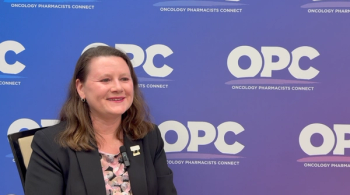
Jolynn Sessions, PharmD, BCOP, FHOPA, shares her experience as a clinical pharmacist and the value of the Oncology Pharmacists Connect meeting.

Scott A. Soefje, PharmD, MBA, BCOP, explained how the expanding use of the FDA’s 505(b)(2) drug approval pathway is creating operational and reimbursement challenges for oncology infusion centers.

Christine Barrett, PharmD, BCOP, addressed advances in the treatment of stage III melanoma that provide the potential to improve long-term outcomes by enhancing immune response, tailoring surgical approaches, and refining patient selection strategies.

Mark Zangardi, PharmD, MS, BCOP, and Amber Cipriani, PharmD, BCOP, discuss the growing role of circulating tumor DNA (ctDNA) testing in oncology, highlighting its applications in early cancer detection, molecular residual disease assessment, and treatment monitoring.

Matthew Lei, PharmD, BCOP, highlights the value of community, collaboration, and innovation at the HOPA Annual Conference.

Their expertise complements multidisciplinary teams in a variety of clinical settings.

This Women Pharmacists Day, Jolynn Sessions, PharmD, BCOP, FHOPA, discussed the crucial role of women in pharmacy.

HOPA’s DEI Advisory Board Chair discusses how creating safe environments, using correct pronouns, and being willing to talk about patients’ mental and physical needs are significant when providing care to LGBTQIA+ patients.

Danielle Roman, PharmD, BCOP, discusses the efficacy and safety outcomes of CDK4/6 inhibitors in early-stage breast cancer, as well as key considerations for CDK4/6 inhibitors in this indication.

Kirollos Hanna, PharmD, BCPS, BCOP, FACCC, addresses some common challenges pharmacists may be facing when looking to operationalize bispecifics at their facilities.
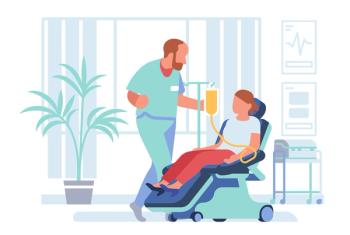
Kirollos Hanna, PharmD, BCPS, BCOP, FACCC, discusses the role of the pharmacist in relation to bispecific care team readiness and patient readiness.

Scott Soefje, PharmD, BCOP, FCCP, FHOPA, MBA, addresses some of the key steps pharmacists should take when conducting a financial analysis for cancer drugs.

Whitney Lewis, PharmD, BCOP, discusses how the treatment armamentarium for NSCLC has expanded in recent years and the associated cause for this acceleration.

Kirollos Hanna, PharmD, BCPS, BCOP, FACCC, addresses some of the considerations for bispecifics in relation to facility readiness at different sites and among different stakeholders.

Danielle Roman, PharmD, BCOP, discusses how the role of the oncology pharmacist has changed in recent years in optimizing early-stage breast cancer treatment with targeted therapies.

Karen Fancher, PharmD, BCOP, discusses some guiding principles for oncology pharmacists when facing ethical dilemmas and provides some recommendations for navigating those challenges.

Although the number of clinical trials has quadrupled, the number of FDA approvals remains stable over a 10-year period, highlighting workforce challenges in clinical research.

There are unique complexities when implementing bispecific antibodies, including site of care considerations, monitoring, and management of adverse events.
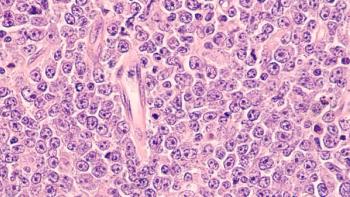
These FDA-approved therapies are used to treat lymphoma after 2 or more lines of therapy and represent significant advancements in the treatment of lymphoma.
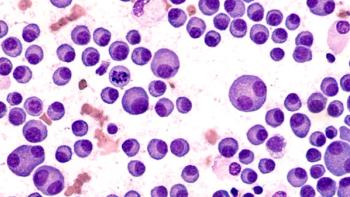
FDA-approved BiTE therapies for relapsed/refractory multiple myeloma show promising response rates, offering off-the-shelf alternatives to CAR T therapy.

Despite being a Schedule I drug, cannabis is increasingly used in oncology for symptom management, although data remains limited.

Lisa Janssen Carlson, PharmD, BCOP, discusses some background and history of regulations for the conduct of clinical trials.

Precision medicine revolutionized NSCLC treatment, targeting specific mutations like KRAS G12C with therapies such as adagrasib to improve patient outcomes.

HOPA has partnered with CSC for a live video interview with an oncology pharmacist and cancer patient via Zoom on Tuesday, February 27 at 5 pm CST.

The president of HOPA discusses the importance of mentorship in oncology pharmacy as well as the value of HOPA’s mentorship initiatives.






























